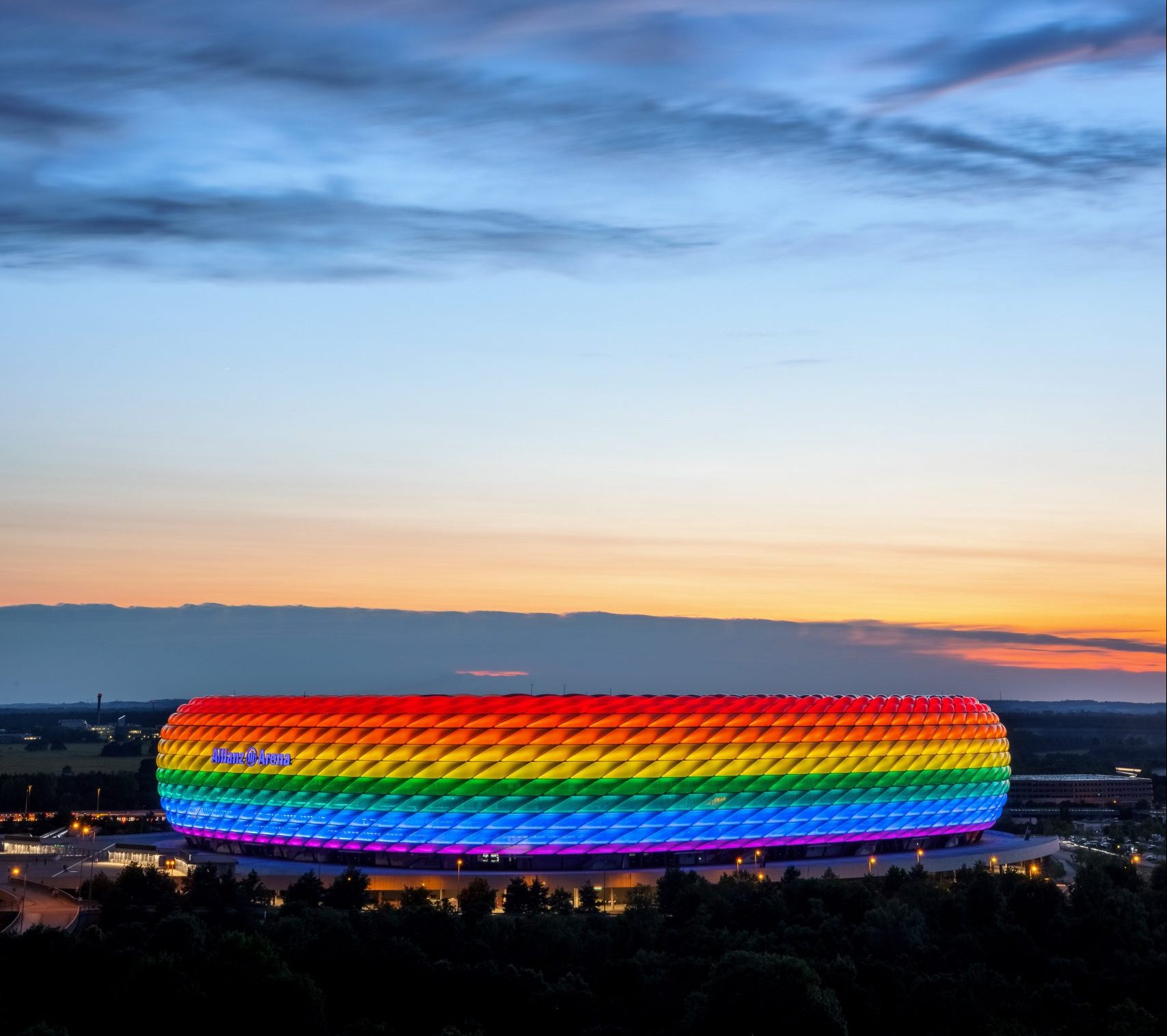The city’s mayor had wanted to use the rainbow lights during a Euro 2020 game at the ground between Germany and Hungary last month, in protest against an anti-LGBT law being passed by Victor Orban’s government.
The legislation bans gay people from appearing in school educational materials or programmes for under-18s and outlaws content in schools deemed to promote homosexuality and gender change.
However, UEFA refused permission for the display, saying it had a political context. The rainbow lights were eventually switched on for Munich’s Christopher Street Day (CSD).
The event marks the anniversary of the Stonewall riots – the spontaneous uprising by New York’s gay community in 1969 – and references the Greenwich Village street where the events took place.
CSD, which has become a moment of celebration and protest across Europe in support of LGBT rights, is held on different dates in different locations between June and August.
Meanwhile, demonstrations have continued in Hungary against the legislation, which has just come into force. Last week, activists erected a 10m-high rainbow-coloured heart opposite the country’s neo-Gothic parliament, as a sign of their intention to continue protesting.
The law has drawn intense opposition from other European countries in the EU and has become a significant battleground in the fight over what the bloc represents. European Commission president Ursula von der Leyen has described the legislation as “a disgrace”.
Warning: Illegal string offset 'link_id' in /mnt/storage/stage/www/wp-includes/bookmark.php on line 357
Notice: Trying to get property 'link_id' of non-object in /mnt/storage/stage/www/wp-includes/bookmark.php on line 37







